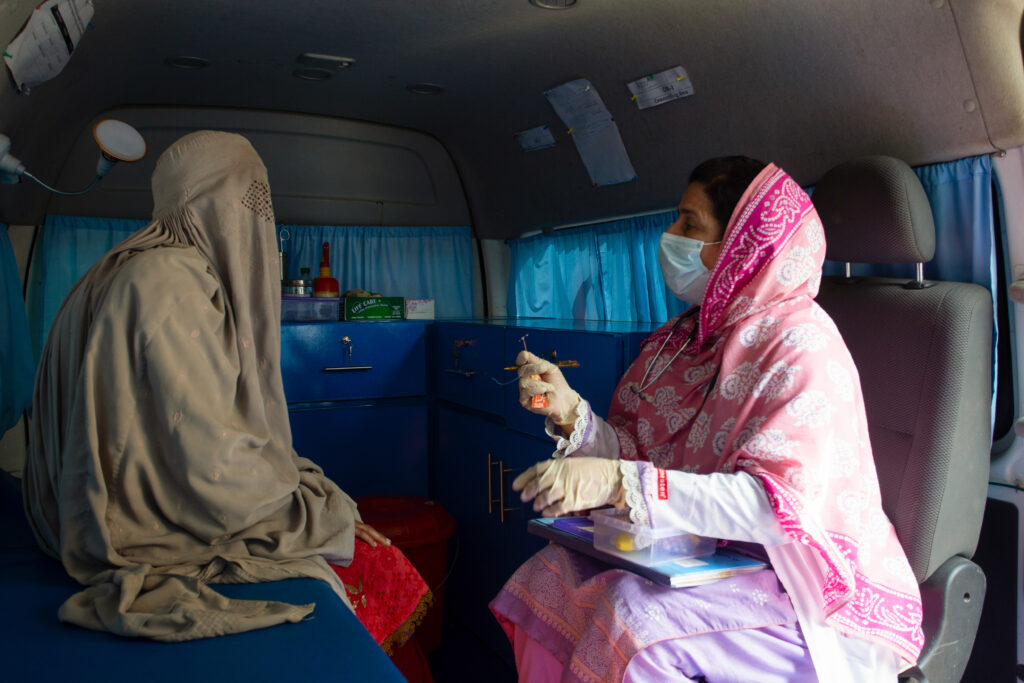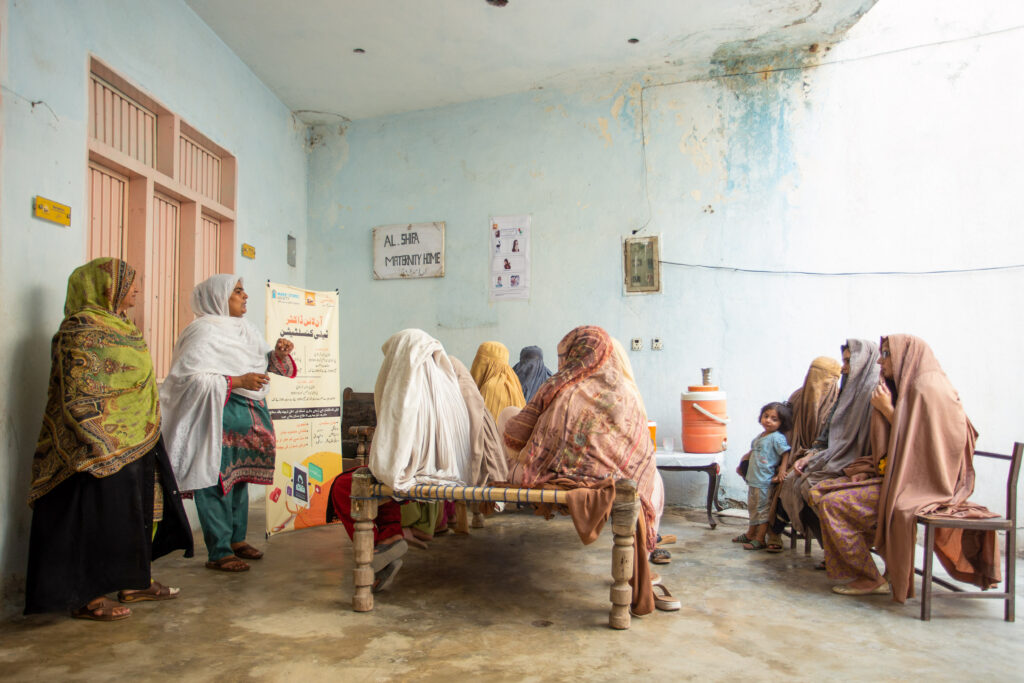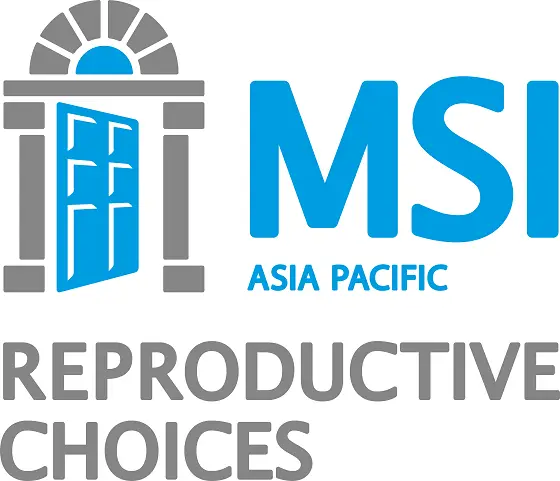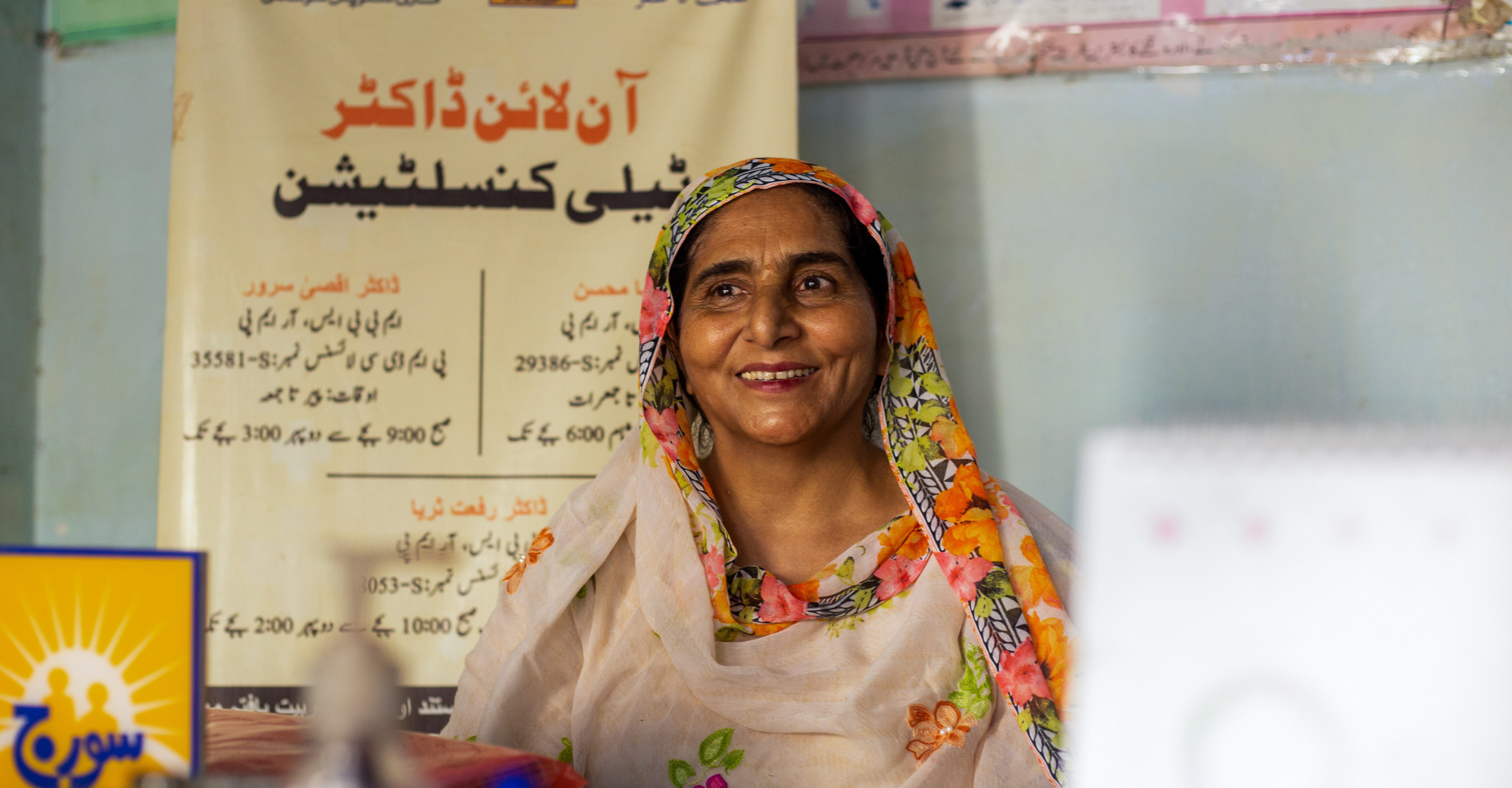As climate disasters become more frequent and severe, the intersection between environmental resilience and sexual and reproductive health is no longer theoretical: it’s urgent, and it’s here.
Pakistan is among the countries most affected by climate change, ranked eighth in the world by the Germanwatch Global Climate Risk Index. In recent years, the country has experienced increasingly extreme climate shocks, including catastrophic flooding, which disproportionately impact women and girls. The global MSI partnership’s local partner in Pakistan, Marie Stopes Society (MSS), has seen this reality play out first-hand.
In the face of these growing threats, reproductive healthcare has a crucial role to play in protecting lives, strengthening systems, and advancing gender equality. MSS is leading innovative work to integrate sexual and reproductive health with climate resilience strategies—ensuring that even in times of disaster, women and girls can access the care they need.
The challenge: A growing need in high-risk communities
The 2022 floods in Pakistan were among the worst in the country’s history. Over 33 million people were affected, including 8.2 million women of reproductive age. UNFPA reported that 650,000 pregnant women in flood-affected areas were in need of antenatal care and safe delivery support.
This wasn’t a one-off event. As the climate crisis intensifies, such disasters are becoming a seasonal occurrence in Pakistan.
For communities already facing poverty, displacement, and under-resourced health systems, climate shocks compound existing vulnerabilities, particularly for women.
The impact is intensified by gender discrimination and poor access to resources. To build truly climate-resilient health systems, SRH must be recognised as a core pillar of climate adaptation and disaster preparedness.
Delivering care in the midst of crisis
When the 2022 floods struck, MSS responded rapidly. The team reallocated funding to establish relief camps in affected areas, providing essential free medical care and contraceptive services. In total, 3,300 flood relief camps were run between August 2022 and June 2024, reaching more than 232,600 clients, including 152,000 women and 50,500 children.
Services extended beyond contraception to meet the broader health needs of displaced populations. Relief camps provided treatment for diarrhoea, respiratory infections, suspected malaria, scabies, jaundice, and other conditions common during emergencies. A total of 78,679 Couple Years of Protection (CYPs) were delivered over this period—an indication of both the demand for family planning and the ability of mobile services to deliver it effectively in crisis contexts.
The response wasn’t only reactive. MSS also partnered with local climate change organisation SAFWCO to launch a pilot program integrating reproductive healthcare with climate awareness.
Running from August 2023 to June 2026, the initiative aims to deliver essential healthcare, while also advocating for women and girls’ needs to be prioritised in future disaster response plans.
This work was supported by the Australian Government via the Australian NGO Cooperation Program, which provides matched funding for projects that demonstrate innovative approaches to urgent social and development challenges.

What we've learned
The Pakistan experience confirms what MSI teams have seen across climate-affected contexts: SRH programmes must include an element of climate response—awareness, advocacy, and adaptation—to be truly resilient.
MSS is applying these lessons in its longer-term planning. For example, mobile outreach vans proved to be highly effective during floods.
As a result, 17 mobile outreach vans will be deployed between 2024 and 2028, operating from eight base districts and reaching 19 adjacent districts.
These vans will provide a stable foundation for both emergency response and ongoing healthcare delivery.
Partnership is another critical component. MSS has worked to build strong relationships with local governments, civil society organisations, and community leaders. These networks have enabled coordinated responses and advocacy for SRH inclusion in national climate plans.
Innovations for sustainability
Sustainability isn’t just about program design: it’s about infrastructure. To reduce dependency on fuel and ensure long-term viability, MSS plans to invest in solar energy solutions, such as solar-powered cells for mobile units and electric bikes for field workers. These climate-friendly innovations will help mitigate rising fuel costs, reduce emissions, and ensure services can continue even in remote or disrupted areas.
The team also plans to work within the Federal Ministry of Health’s Framework of Action on Climate Change and Health, aligning SRH service delivery with national adaptation goals and ensuring continuity of care during future disasters.

What this means for women, communities and climate resilience
Reproductive healthcare gives women more than access to contraception. It gives them agency. By supporting reproductive choice, women are better positioned to lead, to participate in community decision-making, and to advocate for their needs in broader climate responses.
This is about more than health. It’s about dignity, rights, and creating systems that withstand crisis. It’s about ensuring that when the next disaster hits, no woman is left behind.



